As Trump Floods the Zone, the Media Must Focus on What He’s Doing to Our National Security
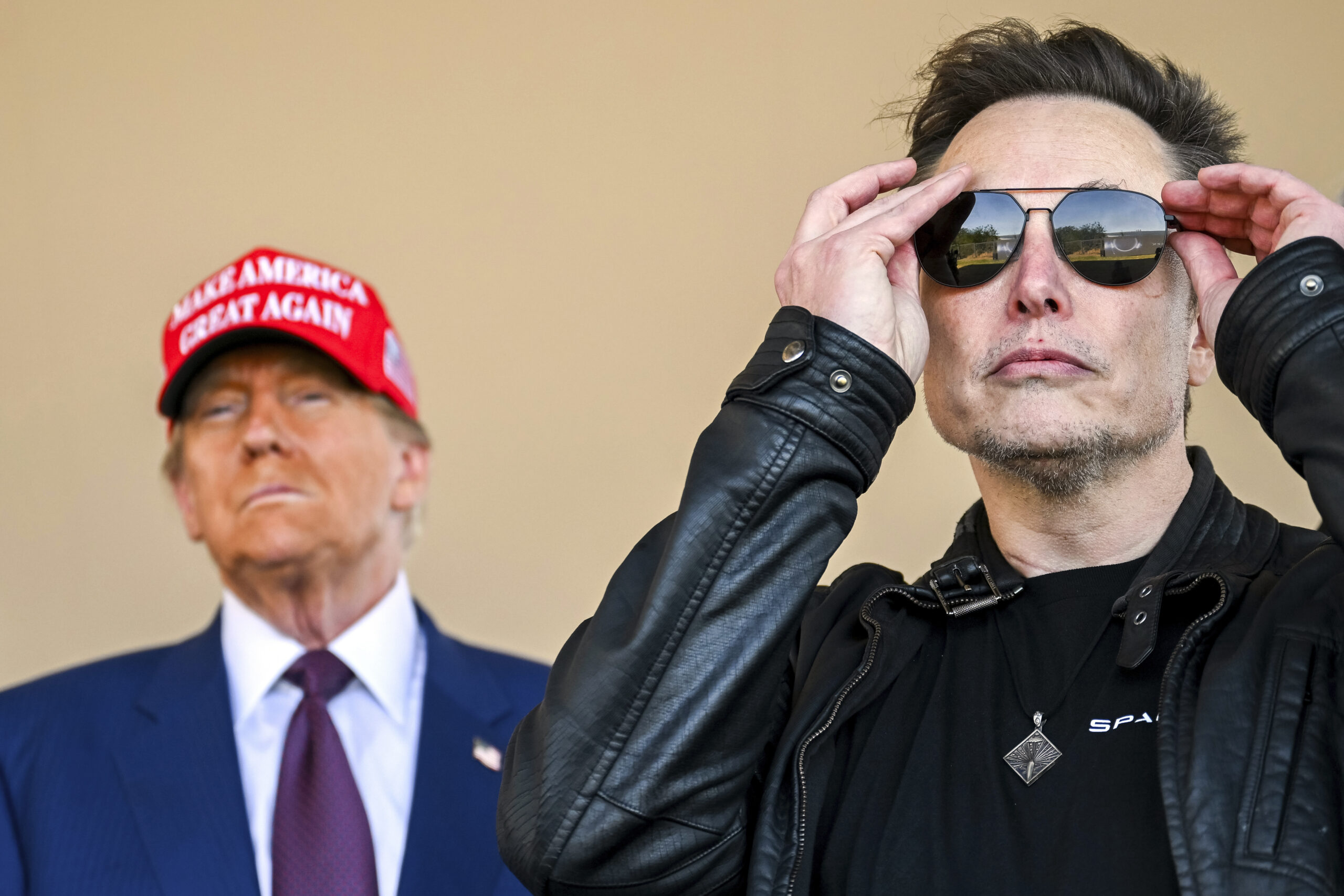
Brandon Bell/Pool via AP
During Wednesday’s White House press briefing, the assembled reporters did not ask Press Secretary Karoline Leavitt a single question about the CIA, despite the alarming reports about agency personnel being gutted and the potential mishandling of classified information.
Instead, the majority of the questions focused on President Donald Trump’s scatterbrained remarks the night before about the U.S. “owning” Gaza. Reporters also drilled down on Elon Musk’s crusade against federal spending and his potential conflicts of interest as he guts federal agencies, like the U.S. Agency for International Development.
While Trump’s Gaza remarks and Musk’s unprecedented powers are certainly worthy of the press’s interest, this week made clear that the media must find a way to better sift through the avalanche of distractions Trump and his team are throwing its way.
Trump’s strategy — championed and developed by the likes of Steve Bannon — is to “flood the zone” and overwhelm both the media and the American public to the point where neither can fully track what he’s doing is in full swing. Bannon explicitly laid out the strategy, saying, “All we have to do is flood the zone. Every day we hit them with three things. They’ll bite on one, and we’ll get all of our stuff done, bang, bang, bang. These guys will never — will never be able to recover. But we’ve got to start with muzzle velocity.”
The media this week has had to spend a significant portion of its time and ink wading through Trump’s fantasies — from an untenable vision for Gaza to fabulist accusations of USAID funds going toward buying “condoms for Hamas.” Debunking the false reality Trump spins can be a full-time job.
However, there is one clear topic that the media can and should prioritize above all: national security.
Trump offering sweeping buyouts at the CIA and then facilitating the distribution of an unclassified email naming all of the CIA recruits from the last two years should be a massive scandal. The New York Times broke the latter story ahead of Wednesday’s press briefing, and it was quickly picked up by the likes of CNN, The Hill, Newsweek, and the Huffington Post. The Times made clear that the email risked America’s adversaries uncovering the names of agents, who were primarily recruited to combat China. Notably, the story did not make it to Fox News Channel — by far the most-watched cable news source in the country — or the Fox News website.
Trump’s purge of FBI agents, including the leaders of field offices, his tariffs, and Musk’s moves both at USAID and the Treasury Department all have profound national security implications – putting at risk the complex mechanisms and crucial alliances that keep everyday Americans safe.
Of course, these stories are making their way into the discourse. CNN ran a segment with author Garrett Graff this week titled, “Journalist warns that purge at the FBI and CIA could lead to next 9/11.” Chris Christie similarly warned ABC News’s This Week on Sunday that Trump’s moves at the FBI were “incredibly dangerous.” However, by Wednesday, the story had been eclipsed by Trump’s many distractions, and the FBI also did not feature at the press briefing.
Republican Sen. Roger Wicker (R-MS) warned that the dismantling of USAID was a huge win for China this week, in comments picked up primarily by The Hill (and Mediaite). Comments like Wicker’s, establishment Republicans defending the national security importance of USAID, were drowned out by coverage of Trump and Musk’s outlandish and quickly debunked claims of the agency sending condoms to Gaza or “paying off” Politico. The news cycle ended with Trump ordering all federal government subscriptions to news organizations canceled, no matter how important those subscriptions (like Politico Pro, which tracks legislation) might be for policy making.
The Politico story is a reminder of the genius of how Trump plays the media. He has an incredible ability to shape the focus of both the pro-Trump media silo and the Trump-critical mainstream media. Pro-Trump media quickly ran with the story, repeated the misleading accusation, and then praised the president for cutting spending by canceling subscriptions – simply glossing over the actual details.
On the other hand, mainstream media spent days reporting on the accusation and then debunking it. It’d be near impossible to catalog the number of news stories, columns, and fact checks published about the fabricated mini-saga. Meanwhile, stories about Russia and China making enormous geopolitical gains because of USAID closing received less attention — as did Constitutional questions surrounding whether or not Musk and Trump legally can shutter USAID.
In all fairness, the media is caught between a rock and a hard place when it comes to Trump – as journalists simply can’t ignore the accusations made by the president of the United States. The only real way the media can fight back against Trump “flooding the zone,” however, is by refusing to take the bait.
MSNBC’s Morning Joe offered a great example of how to push back on Friday with a lengthy segment featuring former USAID administrator Andrew Natsios. Natsios began the conversation by noting, “I am not a liberal. I am not on the left,” and spent a solid ten minutes explaining how USAID is tied to Evangelical Christian organizations around the globe, how it is uniquely able to deliver disaster relief, and why it is essential to America’s global security. Natsios, who served under President George W. Bush, didn’t engage with Trump’s rhetoric or claims. Instead, he simply and methodically explained the impact of closing USAID and ending its programs across the globe.
Trump himself appeared to understand the power of the segment on Friday and attacked Eugene Robinson on his Truth Social platform, taking aim at the left-leaning columnist who spoke with Natsios in order to try and discredit them both.
While there is no easy answer for how journalists can make sense of Trump’s media strategy, focusing on national security and the stories that impact the safety of Americans and America’s role in the world seems like a good place to start.
This is an opinion piece. The views expressed in this article are those of just the author.
New: The Mediaite One-Sheet "Newsletter of Newsletters"
Your daily summary and analysis of what the many, many media newsletters are saying and reporting. Subscribe now!
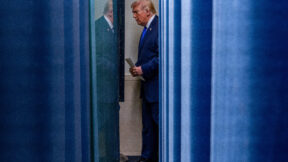
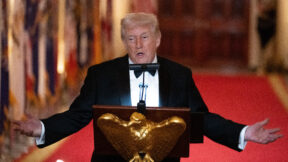
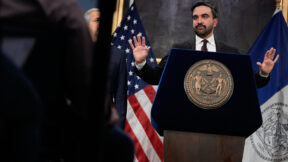
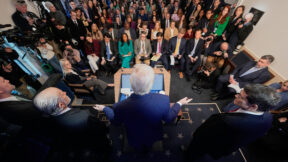


Comments
↓ Scroll down for comments ↓